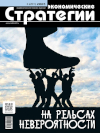Methodological Model for Studying the Spanish Political Mentality. Part 2
DOI: 10.33917/es-4.202.2025.38-49
Spanish political mentality is a historically determined, multidimensional and systemic result of a long multi-ethnic and transcivilizational process. To study it, a methodological concept of imprinting was used, which was firstly substantiated within the framework of the present study. The article formulates the concept of the imprinting-suggestion phenomenon, the basic structural elements of which are represented primarily by epochal political events, as well as great cultural figures and outstanding governors. Taking into account these invariant predictors, critical periods in the history of Spain that influenced the course of its political mentalization are discussed. Based on methodological potential of the imprinting concept, its root sources — romanization and christianization — are revealed. The article examines the evolution specifics of polymentality in Moorish Spain, emergence of Spanish Catholicism and significance of the Reconquista in forming the foundations of the Spanish mentality. These and other key moments in the history of the Kingdom of Spain from this perspective are still awaiting their researchers. The final section provides an analytical review of the philosophical and theological principles of the Spanish political mentality.
References:
[1-32] See in No. 3/2025. p. 21.
33. Simon G. Voyny Rima v Ispanii. 154–133 gg. do n.e. [Rome’s Wars in Spain. 154–133 BC]. Saint Petersburg, 2008.
34. Losev A.F., Chistyakova N.A., Boroday T.Yu., et al. Antichnost’ kak tip kul’tury [Antiquity as a Type of Culture]. Moscow, Nauka, 1988.
35. Rüpke J. (Edit.). A Companion to Roman Religion. Wiley-Blackwell, 2007.
36. Kyumon F. Vostochnye religii v rimskom yazychestve [Eastern Religions in Roman Paganism]. Saint Petersburg, Evraziya, 2002.
37. Shayd Dzh. Religiya rimlyan [Religion of the Romans]. Moscow, 2006, p. 32.
38. Dzhons A.Χ. Gibel’ antichnogo mira [The Death of the Ancient World]. Rostov n/D, Feniks, 1997.
39. Ortega-i-Gasset Kh. Izbrannye trudy [Selected Works]. 2-e izd. Moscow, Ves’ mir, 2000, pp. 330, 331.
40. Badian Е. Roman Imperialism of the Late Republic. Oxford, 1968, p. 5.
41. Yakovleva L.E. Problema natsional’noy identichnosti v ispanskoy filosofii XX veka [The Problem of National Identity in Spanish Philosophy of the Twentieth Century], available at: https://conf.esp-centr.sfedu.ru/materials/995/yakovleva.pdf
42. Klaude D. Istoriya vestgotov [Geschichte der Westgoten]. Saint Petersburg, Evraziya, 2003.
43. Dzhon F. Mak-Artur. Tolkovanie knig Novogo Zaveta. 1-e Poslanie k Timofeyu [Interpretation of the Books of the New Testament. 1st Epistle to Timothy]. Moscow, Slavyanskoe Evangel’skoe Obshchestvo, 2002, p. 9.
44. Deko A. Apostol Pavel [Apostle Paul]. Moscow, Molodaya gvardiya, 2005, p. 56.
45. Cardaillac L. Santiago apóstol: el santo de los dos mundos. El Colegio de Jalisco, 2002.
46. Berdyaev N.A. Dukh i real’nost’ [Spirit and Reality]. Moscow, AST, Astrel’, 2011, p. 10.





